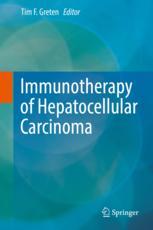

Most ebook files are in PDF format, so you can easily read them using various software such as Foxit Reader or directly on the Google Chrome browser.
Some ebook files are released by publishers in other formats such as .awz, .mobi, .epub, .fb2, etc. You may need to install specific software to read these formats on mobile/PC, such as Calibre.
Please read the tutorial at this link: https://ebookbell.com/faq
We offer FREE conversion to the popular formats you request; however, this may take some time. Therefore, right after payment, please email us, and we will try to provide the service as quickly as possible.
For some exceptional file formats or broken links (if any), please refrain from opening any disputes. Instead, email us first, and we will try to assist within a maximum of 6 hours.
EbookBell Team

4.4
22 reviewsIn this book we provide insights into liver – cancer and immunology. Experts in the field provide an overview over fundamental immunological questions in liver cancer and tumorimmunology, which form the base for immune based approaches in HCC, which gain increasing interest in the community due to first promising results obtained in early clinical trials.
Hepatocellular carcinoma (HCC) is the third most common cause of cancer related death in the United States. Treatment options are limited. Viral hepatitis is one of the major risk factors for HCC, which represents a typical “inflammation-induced” cancer.
Immune-based treatment approaches have revolutionized oncology in recent years. Various treatment strategies have received FDA approval including dendritic cell vaccination, for prostate cancer as well as immune checkpoint inhibition targeting the CTLA4 or the PD1/PDL1 axis in melanoma, lung, and kidney cancer. Additionally, cell based therapies (adoptive T cell therapy, CAR T cells and TCR transduced T cells) have demonstrated significant efficacy in patients with B cell malignancies and melanoma. Immune checkpoint inhibitors in particular have generated enormous excitement across the entire field of oncology, providing a significant benefit to a minority of patients.